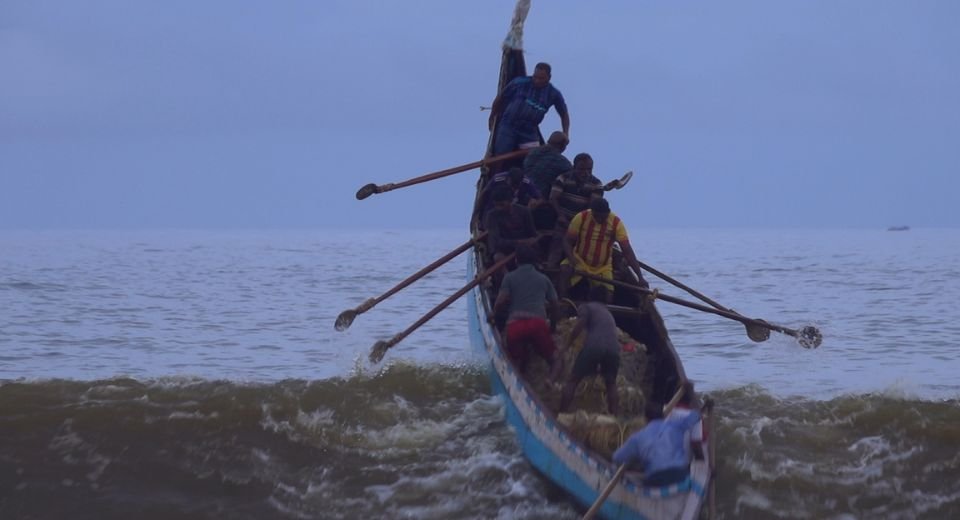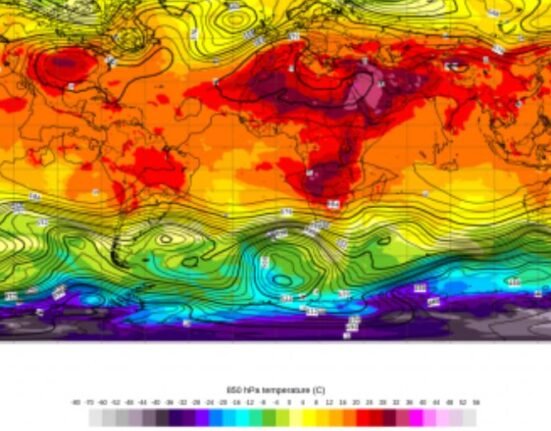HQ Team
September 25, 2023: The Indian Meteorological Department (IMD) has called for “localised, reliable weather services” after a joint study showed an increasing trend in severe cyclones over the country’s densely populated west coast.
Fisher families are at risk of varying storm patterns, especially when tropical cyclones are more prevalent just before and at the start of the southwestern monsoon during March–June and after the season in October–December, according to the study.
Driven by climate change and global warming, weather systems have developed into cyclones in recent years, according to an IMD-Cochin University of Science and Technology (CUSAT) report.
“The report urges development strategies that account for the dangers posed by a changing climate and weather as well as policy and technological initiatives in the areas of storm warning, impact-based local weather services, and localised reliable weather services,” said Dr Mrutyunjay Mohapatra, Director General of Meteorology (DGM), India Meteorological Department (IMD) and one of the authors.
Storm warning
“IMD’s storm warning service is one of the best in the world,” Dr Mohapatra added. “We favour more impact-based forecasting relevant for even better anticipatory action at local levels in view of the challenges of climate change, forecast users’ special needs and our own increasing scientific and technical capabilities.”
Another IMD-CUSAT study on localised marine weather forecasts is expected to be published soon, said CUSAT’s Advanced Centre for Atmospheric Radar Research (ACARR) director Prof S Abhilash, a co-author.
Both studies are part of the research project Forecasting with Fishers that ACARR locally led over the past five years. IMD and Indian National Centre for Ocean Information Services are part of this initiative.
The artisanal fishing communities of Thiruvananthapuram and Kanyakumari took part in this University of Sussex led research.
The local fishers prefer to work whenever there is a reasonable chance of a good catch even if the sea is rough and risk-ridden, according to an earlier IMD-ACARR study.
Forecasters’ ignored
Fishers do not necessarily pay heed to forecasters’ advice to stay away from the sea to avoid risk.
Instead, they look at more detailed, nuanced and timely weather information to help them negotiate risks during the monsoon season. The rainy, windy, rough-sea monsoon season is marked by high wind and waves, but also prospects of good catch.
Fishers’ bulletins and daily weather forecasts of the India Meteorology Department are largely meant for the entire state of Kerala.
Often there is a high wind alert for the entire 580-km coast of the state, not the local shores.
Fishers have been demanding and trying to access localised and more detailed forecasts as ACARR’s local pilot studies and technology tests showed.
Rising cyclonic activity
The southwestern shores and coastal waters have witnessed extreme weather in recent years, amidst rising cyclonic activity in the adjoining Eastern Arabian Sea.
A dramatic, tragic example is a very severe cyclone in the 2017 post-monsoon season. Cyclone Ockhi formed in the southwestern Bay of Bengal on 28 Nov 2017, traversed 2500 km, rapidly intensifying into a Very Severe Cyclonic Storm (119–221 kmph) near the coast of south India claiming at least 365 fishers caught in the sea.
Forecasts were inadequate, dissemination even worse, studies show.
Routine fishing also remains risky on the west coast. In 2016 –2021, 345 more fishermen died off the shores of Kerala, including 145 in Thiruvananthapuram, the southernmost district with 50,000 artisan fishers.
In Thiruvananthapuram artisan fishers rely mostly on small boats of about 32 feet in length and even smaller canoes and rafts engaged in hook-and-line, shore seine, boat seine or net fishing 0–50km from the shore.
Canoes capsize
Most boats have outbound engines, but these small craft are vulnerable to winds of 40 kmph and resulting waves of over 9 feet in height. Such sea states can capsize small boats and canoes and hurl the small rafts aloft, hitting or throwing the fishermen overboard.
Fishers frequently suffer injuries during the season.
The new studies are expected to contribute to policy changes and better safety measures, fisheries experts and social workers said.
“Looking ahead at long-term solutions, the sustainability of fishing can only be assured if timely and accurate weather forecasts and information on fish stocks are accessible to fishers for free,” said Dr Benny Chiramel SJ, a social activist who has been closely studying fishing communities in Thiruvananthapuram.
(Photo: Vincy Lopez)








